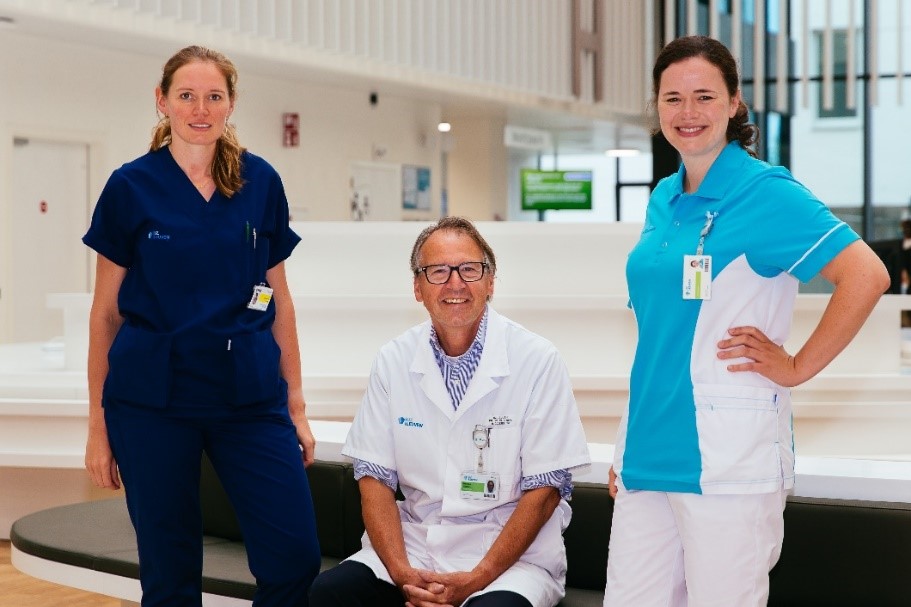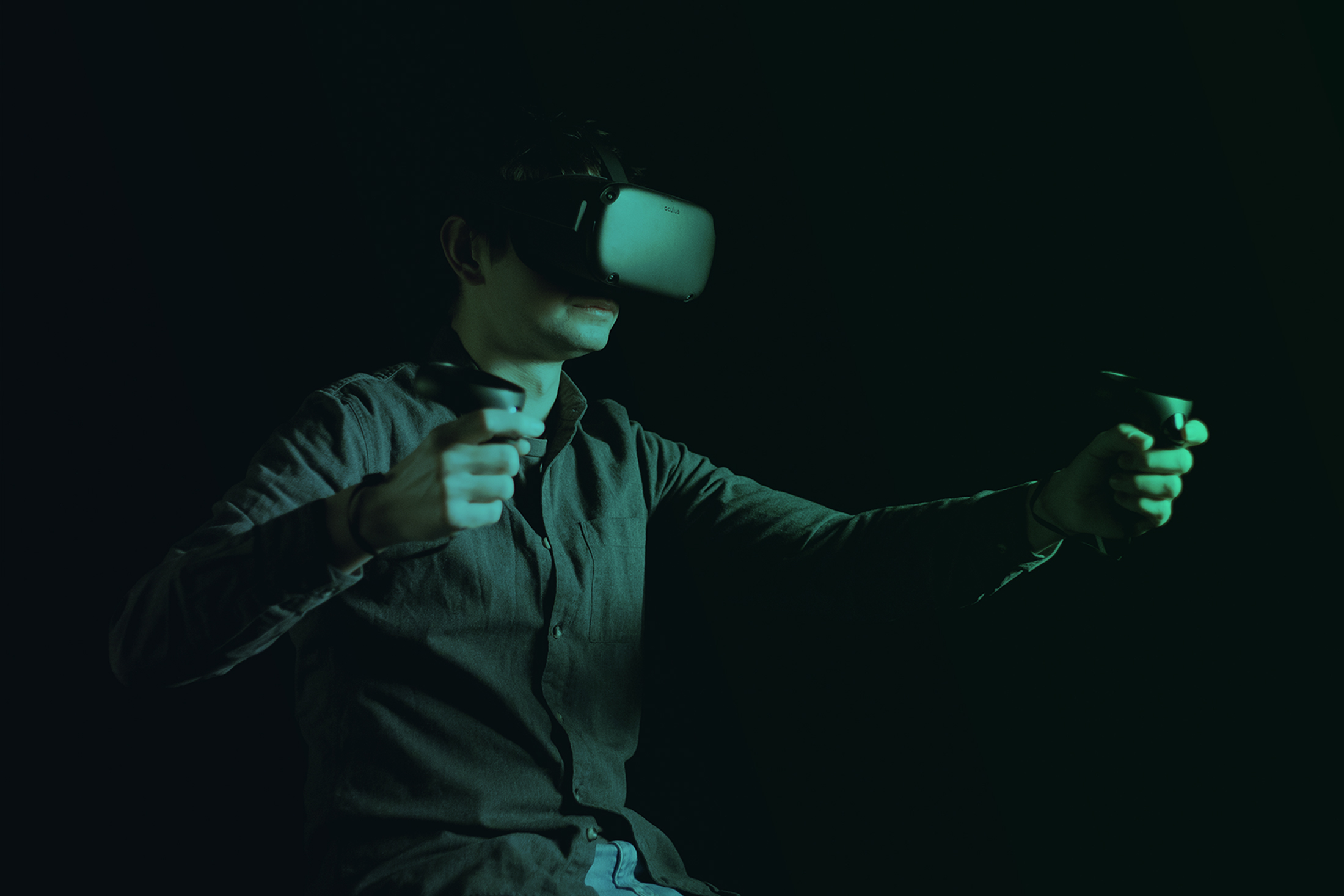MotiVeeR UZeLf, how are you doing?
In 2021 the VR4REHAB project acquired a grant in the second call for capitalization provided by Interreg North West Europe, which meant an extension of VR4REHAB´s former work which would focus on creating innovative VR solutions for Covid-19 rehabilitation and ‘Long Covid’
After a Hackathon week and a Dev Jam period MotiVeeR UZeLf came out as one of the 3 winning projects, developed by the Belgian University Hospital of the University of Leuven, and directed by Eline Haghedooren. Supported by some of the best specialists in the sector, Improvive, InmotionVR, and In4Care, MotiVeeR UZeLf has managed to achieve significant developments.
Physical Therapist Eline Haghedooren answers some questions to give us an update on the team and project experiences.
Where did the initial idea come from?
“There has been a long need for alternatives in rehabilitation to get patients in intensive care units moving. During long-term admissions, especially in isolation rooms, the tools are often limited and, over time, monotonous. Introducing an innovative technique such as VR into care immediately means a huge impact in the daily rehabilitation of patients in intensive care units.”
What was needed to achieve your goals?
“Currently, there is no VR application adapted specifically for the rehabilitation needs of the intensive care population. So we had yet to develop this. On top of that, a new technique needs to be sufficiently tested. So we needed financial support for both the development and testing of our VR device. This was found thanks to the VR4REHAB grant and the VR4REHAB consortium.”
What are the challenges faced during the project?
“We experienced several challenges during the project:
– Complex legislation regarding MDR – Lengthy procedures
– Additional safety procedures given critical patient population
– Financial: small budget”
How is the project helping patients?
“There is a scientific consensus that “early mobilization” in the intensive care population has a beneficial impact on the rehabilitation potential of the patient. Early movement/rehabilitation in a critical phase, with often bed-bound and isolated patients, is often a difficult task for both the patient and therapist. With a fun and interactive VR application, we seek to intrinsically encourage patients to move in these early phases.”
In which stage of development are you now?
“The software has been developed, all procedures have been completed correctly and widely supported, and the first 2 patients have been included in the study regarding “feasibility and safety of an interactive VR device in the ICU””
According to your experience, how do you think we could scale up for impact?
“Support the further development of this ICU-specific VR application to make it widely accessible.”
This is what some of the Eline´s patients say
“It is very fun to do this”
“Finally something different”
“Virtual what? That is for the younger generation, that won’t be anything for me!” ➔ After 5 minutes of playing: “I still want this!” (man, 71 years)
Eline´s personal experience
“Too bad that we had to experience so many obstacles, because there is huge potential in VR for the healthcare! This is why we need to keep going on!”
The VR4LongCovid project will come to an end in March 2023. The results of the 3 winning projects will be presented in a webinar in April. Further details will follow.

Be part of the XR4REHAB Network!
Everyone with an affinity (in the broadest sense) with XR technology in the healthcare and rehabilitation sector can become member of the XR4REHAB Collaboration & Innovation Network and benefit from several advantages.
All we ask from you is active participation. How? For instance by joining one of the working groups, by the provision of research expertise, by granting access to patients or IT students.
Interested? Find more information here.
